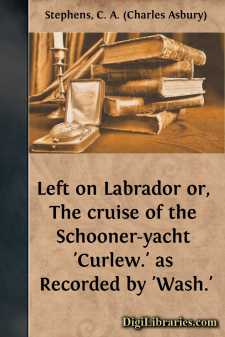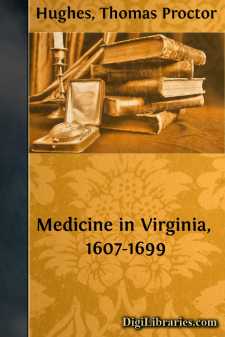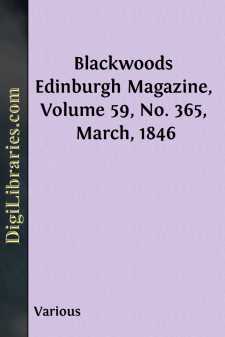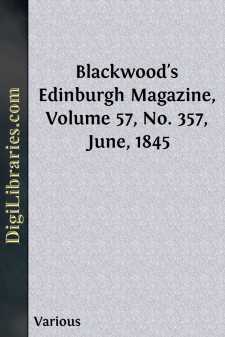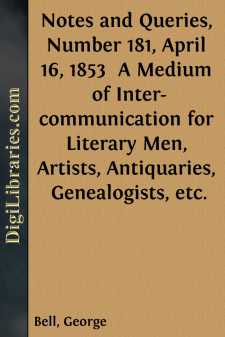Categories
- Antiques & Collectibles 13
- Architecture 36
- Art 48
- Bibles 22
- Biography & Autobiography 813
- Body, Mind & Spirit 142
- Business & Economics 28
- Children's Books 17
- Children's Fiction 14
- Computers 4
- Cooking 94
- Crafts & Hobbies 4
- Drama 346
- Education 46
- Family & Relationships 57
- Fiction 11829
- Games 19
- Gardening 17
- Health & Fitness 34
- History 1377
- House & Home 1
- Humor 147
- Juvenile Fiction 1873
- Juvenile Nonfiction 202
- Language Arts & Disciplines 88
- Law 16
- Literary Collections 686
- Literary Criticism 179
- Mathematics 13
- Medical 41
- Music 40
- Nature 179
- Non-Classifiable 1768
- Performing Arts 7
- Periodicals 1453
- Philosophy 64
- Photography 2
- Poetry 896
- Political Science 203
- Psychology 42
- Reference 154
- Religion 513
- Science 126
- Self-Help 84
- Social Science 81
- Sports & Recreation 34
- Study Aids 3
- Technology & Engineering 59
- Transportation 23
- Travel 463
- True Crime 29
Sort by:
by:
John Mason Peck
CHAPTER I. Its extent,—Subdivisions,—Population,—Physical features,—Animal, Vegetable and Mineral productions,—History,—Prospective increase of Population. The Valley of the Mississippi, in its proper geographical extent, embraces all that portion of the United States, lying between the Alleghany and Rocky Mountains, the waters of which are discharged into the gulf of Mexico, through the...
more...
CHAPTER I. Sequel to the "Graphite Lode."—The Fifteen Thousand Dollars, and how it was invested.—About the Yacht.—The Schooner "Curlew."—Capt. Mazard.—Guard.—The Gloucester Boys.—"Palmleaf, Sar."—Getting Ready for the Voyage.—Ship-Stores.—The Howitzer.—The Big Rifle.—A Good Round Bill at the Outset. Raed got home from Katahdin on the night of the 15th of...
more...
CHAPTER ONE European Background and Indian Counterpart to Virginia Medicine European Background The origins of medical theory and practice in this nation extend further than the settlement at Jamestown in 1607. Jamestown was a seed carried from the Old World and planted in the New; medicine was one of the European characteristics transmitted with the seed across the Atlantic. In the process of...
more...
by:
Various
THE TWENTY-FOURTH BOOK OF HOMER'S ILIAD, Attempted in English Hexameters. [It may be thought idle or presumptuous to make a new attempt towards the naturalization among us of any measure based on the ancient hexameter. Even Mr Southey has not been in general successful in such efforts; yet no one can deny that here and there—as, for instance, at the opening of his Vision of Judgment, and in his...
more...
by:
Various
PÚSHKIN, THE RUSSIAN POET. No. I. Sketch of Púshkin's Life and Works, by Thomas B. Shaw, B.A. of Cambridge, Adjunct Professor of English Literature in the Imperial Alexander Lyceum, Translator of "The Heretic," &c. &c. Among the many striking analogies which exist between the physical and intellectual creations, and exhibit the uniform method adopted by Supreme Wisdom in the...
more...
CHAPTER I WE START FOR THE WAR I, James Frisby of Fairlee, in the county of Kent, on the eastern shore of what was known in my youth as the fair Province of Maryland, but now the proud State of that name, growing old in years, but hearty and hale withal, though the blood courses not through my veins as in the days of my youth, sit on the great porch of Fairlee watching the sails on the distant bay,...
more...
by:
Andrew Lang
Preface Each Fairy Book demands a preface from the Editor, and these introductions are inevitably both monotonous and unavailing. A sense of literary honesty compels the Editor to keep repeating that he is the Editor, and not the author of the Fairy Tales, just as a distinguished man of science is only the Editor, not the Author of Nature. Like nature, popular tales are too vast to be the creation of a...
more...
by:
Various
WILKINS ON ACCOMPLISHMENTS. A DUOLOGUE. JOHN QUILL. Mr. Wilkins. Mrs. Wilkins, of all the aggravating women I ever came across, you are the worst. I believe you'd raise a riot in the cemetry if you were dead, you would. Don't you ever go prowling around any Quaker meeting, or you'll break it up in a plug muss. You? Why you'd put any other man's back up until he broke his...
more...
by:
George Bell
"THE SHEPHERD OF BANBURY'S WEATHER-RULES." The Shepherd of Banbury's Rules to judge of the Changes of the Weather, first printed in 1670, was long a favourite book with the country gentleman, the farmer, and the peasant. They were accustomed to regard it with the consideration and confidence which were due to the authority of so experienced a master of the art of prognostication, and...
more...
CHAPTER I AN UNEXPECTED GUEST When I look back on the beginning of my adventures, I can set the very day and hour when the tranquil course of my early life came to an end, when the comfortable commonplaces of my previous existence altered, when the placid current of my former life broke suddenly and without warning into the tumultuous rapids which hurried me from surprise to surprise and from peril to...
more...



